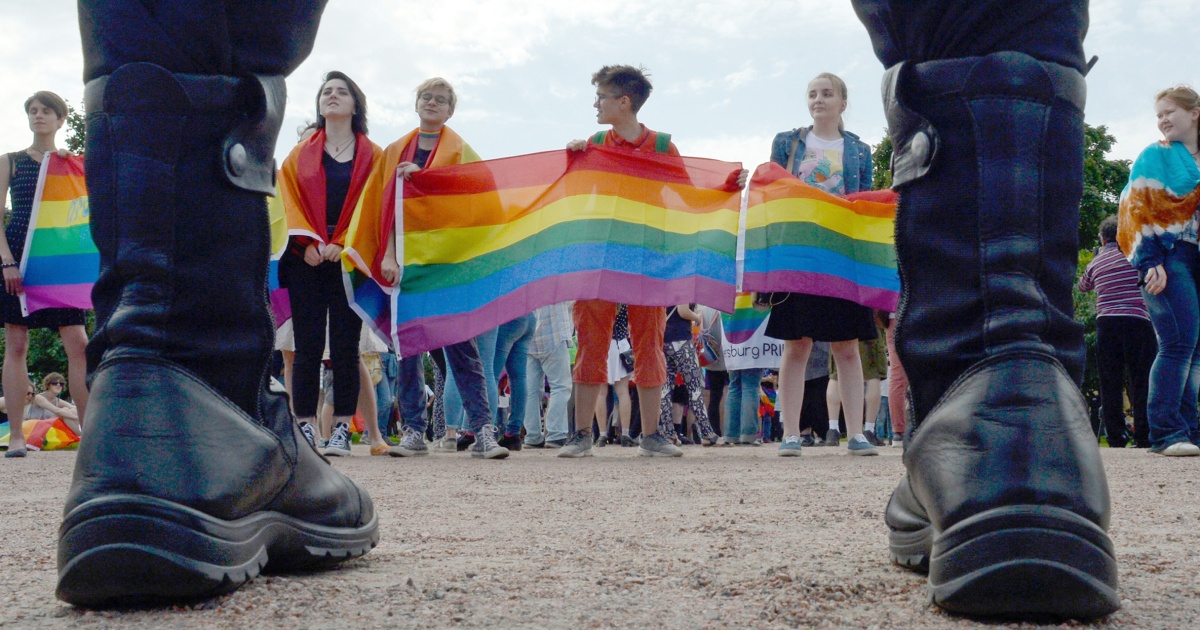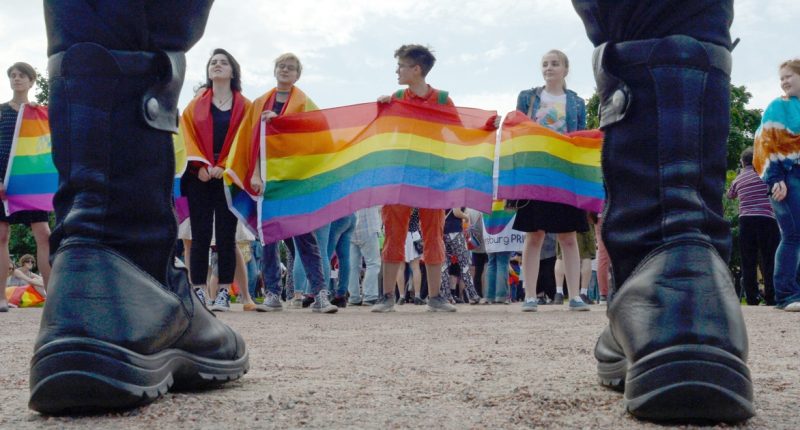
MOSCOW — Russia’s Supreme Court ruled on Thursday that LGBTQ activists should be designated as extremists, in a move that representatives of gay and transgender people fear will lead to arrests and prosecutions.
A Reuters reporter in court heard it announce that it had approved a request from the justice ministry to recognize what it called “the international LGBT social movement” as extremist and to ban its activities.
The move is part of a pattern of increasing restrictions in Russia on expressions of sexual orientation and gender identity, including laws outlawing the promotion of “non-traditional” sexual relations and banning legal or medical changes of gender.
President Vladimir Putin, expected shortly to announce that he will seek a new six-year term in March, has long sought to promote an image of Russia as a guardian of traditional moral values in contrast with a decadent West.
In a speech last year, he said the West was welcome to adopt “rather strange, in my view, new-fangled trends like dozens of genders, and gay parades” but had no right to impose them on other countries.
Putin’s spokesman Dmitry Peskov told reporters before the court decision was announced that the Kremlin was “not following” the case and had no comment on it.
The Supreme Court took around five hours to issue its ruling, after opening its session at 10 a.m. (0700 GMT). The proceedings were closed to media, but reporters were allowed in to hear the decision.
LGBTQ activists had seen the decision as inevitable after the Nov. 17 request by the justice ministry, which said — without giving examples — that “various signs and manifestations of extremist orientation, including the incitement of social and religious discord” had been identified in the activities of the LGBTQ movement in Russia.
“Of course it’s very alarming, and I don’t remember the threat ever being so serious and real,” Alexei Sergeyev, an LGBTQ activist in St. Petersburg, told Reuters TV in an interview earlier this month.
More than 100 groups are already banned in Russia as “extremist.” Previous listings, for example of the Jehovah’s Witnesses religious movement and organizations linked to opposition politician Alexei Navalny, have served as a prelude to arrests.
Sergeyev said activities such as psychological and legal support, or even “meetings where you can just sit and drink tea”, would be driven underground, depriving many LGBTQ people of support.
“They will either commit suicide or simply be in some terrible state — their life will be shortened and their health will deteriorate, they will drink and smoke more, and so on, somehow trying to escape from this reality.”
Source: | This article originally belongs to Nbcnews.com










